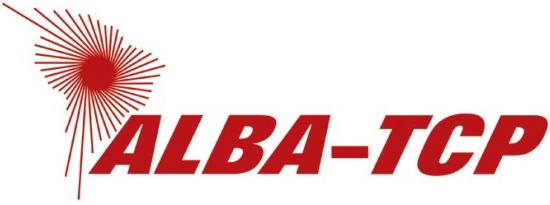Nicaragua ratifies ALBA ‘fair trade’ treaty

Nicaragua Dispatch | April 19, 2013
Nicaragua ratifies ALBA ‘fair trade’ treaty
On the eve of Nicolas Maduro’s inauguration in Venezuela, Sandinista lawmakers pass ECOALBA-TCP as a sign that ALBA is alive and well
By Tim Rogers / Nicaragua Dispatch
In an apparent attempt to quell concerns that the Venezuelan-propped Bolivarian Alliance for Our Americas (ALBA) will fall like a house of cards following the death of its main architect, former President Hugo Chávez, Sandinista lawmakers today passed a law to create a new “fair trade” agreement between Nicaragua and its fellow travelers in ALBA.
The new “people’s trade treaty” of ALBA was ratified by Nicaragua one day before Nicolás Maduro is sworn in as the next President of Venezuela—a clear political sign, pundits say, that ALBA intends to outlive its founder.
Known by the tongue-baffling acronym ECOALBA-TCP, the people’s trade treaty is intended to promote more economic integration, cooperation and “fair trade” between Venezuela, Cuba, Bolivia, Ecuador, Cuba, Antigua and Barbuda, Dominica and St. Vincent and the Grenadines. The role of the people in their new treaty, however, is not clear since it mostly seems to promote the expansion of state-run “grand national” companies that conduct their business in a new virtual currency called SUCRE, a type of Bolivarian Bitcoin.
The ECOALBA-TCP was devised by Chávez during previous ALBA summits, but wasn’t ratified by Nicaragua until today. The Sandinistas, who passed the law unilaterally—as has become their custom—promise it will bring more development and trade to Nicaragua.
“This is an international accord that formalizes the exchange of commerce, cooperation and the transfer of technology between countries,” explained Sandinista lawmaker Wálmaro Gutiérrez, president of the National Assembly’s economic commission. “The private sector has also been asking for an international instrument that will formalize these commercial relations of ALBA.”
But Nicaragua’s opposition says ECOALBA-TCP is exactly the opposite of the type of free-trade agreement the country needs to grow its economy.
In fact, the text of the people’s trade treaty lists all the ways in which it will be different from a regular free-trade agreement, which is considered capitalist and vile. The ALBA pact will promote the strengthened role of the state, maintain protectionism and promote economic sovereignty, the treaty promises. ECOALBA-TCP also aims to promote the creation of state-run “grand-national companies,” which are somehow supposed to be the opposite of transnational companies in that they will put the people’s interests ahead of corporate profit—at least in theory.
The treaty calls for “the execution of joint investments in trade issues that can adopt the form of Grand National companies—the association of state companies of different countries to impel a sovereign development and of mutual benefit.”
While the text of the people’s trade treaty reads like a progressive—if not overly simplified and ideological—document, at its core is an effort to consolidate the new economic clout and wealth of the “ALBAgarchs” through promoting centralized conglomerates such as ALBANISA, according to opposition lawmaker Carlos Langrand.
Langrand, who is also a member of the legislative economic commission, says the ECOALBA-TCP runs totally counter to the free-trade model that has benefited Nicaragua’s commercial, investment and economic growth in recent years. The ALBA trade treaty, he says, is based more on peddling anti-U.S./capitalist rhetoric and failed central planning policies.
“This is about increasing state controls to determine who produces what, who buys what, and what the market conditions will be,” Langrand told The Nicaragua Dispatch.
The congressman, one of 24 opposition lawmakers to vote against the initiative today, claims the new ALBA economic zone is an attempt to “continue forcing ideology” upon the economy.
However, the lawmaker says, there could be an element of smoke and mirrors to the whole treaty. Langrand says the opposition thinks ALBA is already entering its twilight, and that the new trade treaty probably won’t have much of a future, especially considering that Nicaragua has no meaningful commercial relationship with any ALBA country other than Venezuela.





